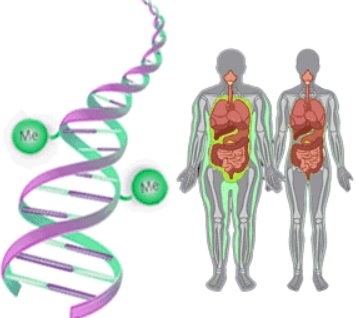Genes Aren’t Destiny: Your Lifestyle Matters More Than You Think
For decades, we've been told that our genes determine how long we’ll live. Got "good genes"? Great — enjoy your long, healthy life. Right?
Not quite.
A new study published in Nature Medicine has flipped that idea on its head, revealing something rather revolutionary: our lifestyle choices and environment have a far greater impact on how long we live than our DNA ever could.
The Study That Changed Everything
British scientists conducted a massive study analysing the health, genetic data, and lifestyle habits of hundreds of thousands of people. Using a cutting-edge method called proteomic profiling — which measures how quickly your body is ageing at a molecular level — researchers were able to determine people’s biological age (a much more accurate marker than the number on your birthday cake).
They examined over 164 environmental and social variables, including physical activity, socioeconomic status, smoking, and early childhood factors — and compared these with genetic risk factors for various diseases.
The Big Reveal: Lifestyle 17, Genes 2
Here’s the headline stat:
- Environmental and lifestyle factors explained around 17% of lifespan variation
- Genetics? Just 2%
The rest? Things like age and gender, which aren’t exactly within our control — but the seventeen percent that is? That’s where our power lies.
This finding is especially powerful because it confirms that we can make real, meaningful changes that impact not just how long we live — but how well we live.
When Do Genes Matter?
Genetics still plays a stronger role in some specific diseases — such as breast, ovarian, and prostate cancer, and dementia. But for lung, heart, and liver diseases, our environment and lifestyle take centre stage.
In short: while you may be born with a risk, it’s how you live that often determines whether that risk becomes a reality.
So, What Actually Matters?
According to the study, the biggest lifestyle factors linked to shorter lifespans and accelerated biological ageing were:
- Smoking
- Low physical activity
- Poor socioeconomic conditions
- Early life exposures (like maternal smoking)
- Higher weight or height in childhood
Surprisingly, diet had no clear link to biological ageing in this study — a finding that contradicts much of the existing literature on nutrition and chronic disease. But it’s likely not that diet doesn’t matter — rather, its role in biological ageing is complex and still being explored.
What Does This Mean for You?
This study brings hope — and a healthy dose of responsibility. It means your genes don’t have to define your future. Your daily choices, routines, and environment can influence how you age and how long you thrive.
Yes, we can't all change our income or housing overnight. But we can:
- Move more
- Quit smoking
- Get quality sleep
- Connect with others
- Invest in our mental wellbeing
- Create a lifestyle that supports health, not just weight
"This is great news — unless you were hoping your good genes would do all the hard work for you."
The Takeaway
You may have inherited your DNA, but you create your destiny. And the science is clear: how you live matters more than what’s in your genes. Focus on the small, sustainable changes that improve your everyday environment — your body (and future self) will thank you.











